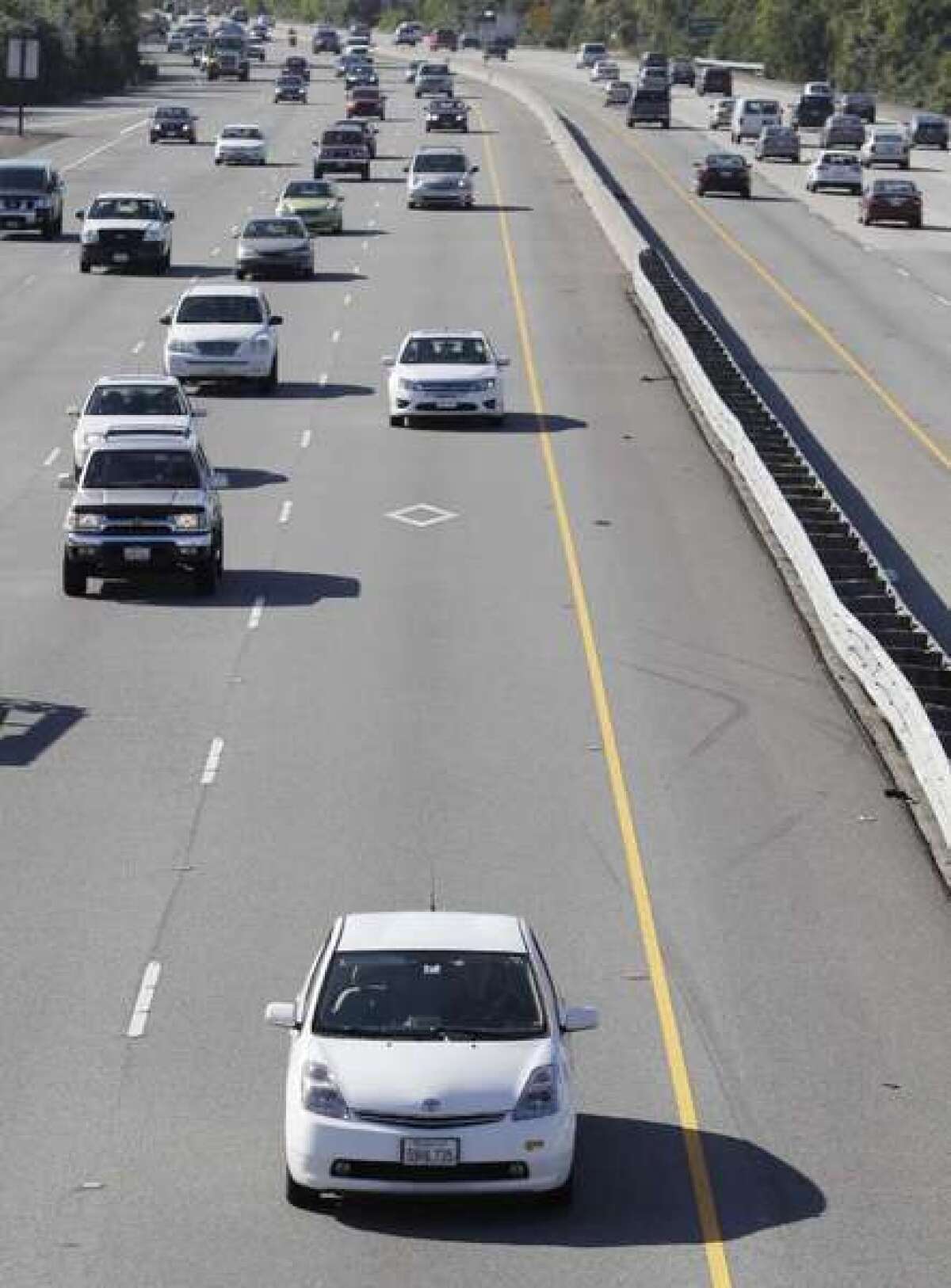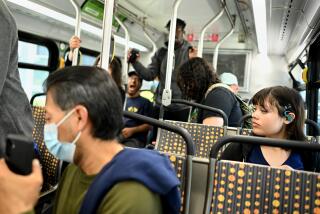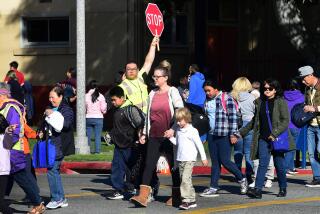Despite rising gasoline prices, we drive alone more often

- Share via
It’s one of the most interesting facts in a new study that covers 40 years of U.S. driving, from 1970 to 2010.
Even after a 737% increase in the average price of a gallon of regular gasoline over that period, from 36 cents to more than $3, Americans are driving alone more often than before.
Michael Sivak’s study -- titled Effects of Vehicle Fuel Economy, Distance Traveled, and Vehicle Load on the Amount of Fuel Used for Personal Transportation in the U.S: 1970-2010 -- can be found here.
Sivak is the director of sustainable worldwide transportation for the University of Michigan’s Transportation Research Institute.
He found that in 1970 the average vehicle load -- the number of people riding in a car, truck or SUV -- was 1.9 people. By 2010, it was 1.38.
“That is a huge drop,” Sivak said.
One possible factor: more women on the road, juggling careers and family responsibilities.
In another study he did, Sivak noted that male drivers, as a percentage of all people on the road, had fallen from more than 60% to less than 50% between 1963 and 2010.
But Sivak also suspects that, in at least some cases, people are driving alone because they still “want the convenience of driving by themselves. They are not eager to drive an extra mile to pick up a friend.”
Another finding in the study: Once freed from a car, truck or SUV that has poor fuel economy, the new owners of high mpg cars are apparently so pleased that they drive more.
Consider it the low-nicotine syndrome, where some smokers burn through more cigarettes once they switch to a lighter brand.
Sivak calls it a rebound effect: “About 10% of the gain in fuel economy is used up by an increase in the amount of driving. If you improve fuel economy by 10%, you only get a 9% benefit.”
ALSO:
Volkswagen unveils 261 mpg car
Pain at the pump changing U.S. driving habits
Gasoline tax may push California pump prices higher
More to Read
Inside the business of entertainment
The Wide Shot brings you news, analysis and insights on everything from streaming wars to production — and what it all means for the future.
You may occasionally receive promotional content from the Los Angeles Times.











